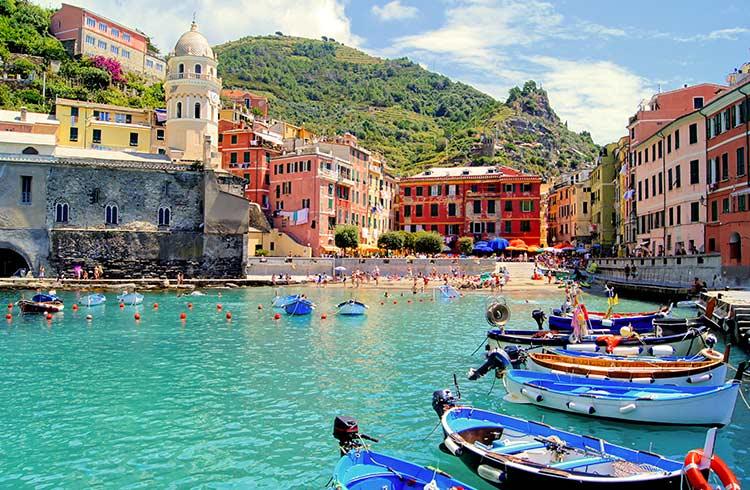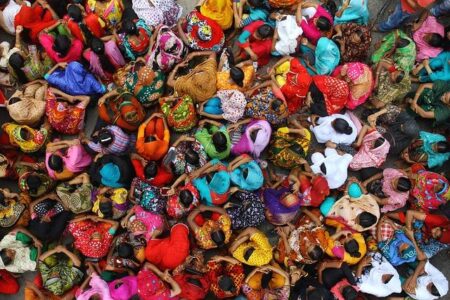In a powerful display of solidarity, over two million people took to the streets across 100 cities in Italy this weekend to voice their support for Palestine. Organized by a coalition of left-wing groups and grassroots activists, the mass protests highlighted widespread outrage over the ongoing conflict and demanded an end to occupation and violence. From Rome to Milan, thousands rallied under banners calling for justice and international intervention, signaling a deeply rooted commitment within Italy’s social movements to the Palestinian cause. This unprecedented mobilization marks one of the largest demonstrations in recent Italian history, underscoring the growing resonance of the issue among diverse sectors of society.
Mass Mobilization Across Italy Signals Growing Solidarity with Palestine
Across Italy, an unprecedented wave of activism has erupted as over two million people flooded the streets in more than 100 cities, demonstrating a deepening commitment to the Palestinian cause. From the bustling piazzas of Rome to the vibrant avenues of Milan, demonstrators carried banners, chanted slogans, and engaged in spirited discussions, reflecting a surge in grassroots solidarity that transcends political and social divides. This mass mobilization highlights a collective outrage against the ongoing violence and a demand for justice, putting intense pressure on government officials to reconsider their foreign policy alignment and support for humanitarian efforts.
The scale and coordination of these protests reveal a broad coalition of activists, trade unions, youth organizations, and community groups united by common goals. Key demands voiced on the streets included:
- Immediate cessation of military aggression in Palestine
- Recognition of Palestinian self-determination and rights
- Increased humanitarian aid and protection for civilians
- Accountability for human rights violations
| City | Estimated Participants | Highlight |
|---|---|---|
| Rome | 400,000 | Largest single-city turnout |
| Milan | 280,000 | Massive youth participation |
| Naples | 150,000 | Strong trade union presence |
| Florence | 100,000 | Interfaith solidarity rallies |
Examining the Impact of Widespread Demonstrations on Italian Political Discourse
Italy has witnessed an unprecedented surge in political activism, with over two million people mobilizing across 100 cities in a massive show of solidarity with Palestine. This wave of demonstrations has not only reflected deep public engagement but has also catalyzed a shift in political discourse, compelling parties and media outlets to reassess their positions on Middle Eastern policies. The scale and intensity of the protests have pressured government officials to address issues that were previously marginalized, challenging entrenched narratives and pushing human rights concerns to the forefront of national debate.
Key impacts on political discourse include:
- Reframing of Foreign Policy: Increased demands for a more balanced and humanitarian approach to foreign relations.
- Media Diversification: Broader coverage and voice for grassroots perspectives often sidelined in mainstream media.
- Cross-Partisan Dialogue: Unusual collaborations between left-wing and progressive factions advocating for justice and peace.
- Public Accountability: Calls for transparency regarding arms sales and diplomatic ties influencing the conflict.
| Political Sphere | Shift Observed | Example |
|---|---|---|
| Parliament | Debate on arms exports intensified | Proposal for export restrictions introduced |
| Media | More inclusive reporting | Independent outlets gained readership |
| Political Parties | Emergence of coalition pressure | Joint statements on Middle East policy |
Strategies for Sustaining Momentum and Strengthening International Support Networks
The unprecedented turnout in Italy’s streets signals more than a momentary outpouring of solidarity; it marks the beginning of a durable, coordinated effort to sustain global awareness and activism for Palestine. Key to maintaining this momentum is establishing robust communication channels between grassroots organizations, trade unions, and academic institutions. Regular international webinars, joint statements, and solidarity days will ensure that the cause remains not just a headline but a constant agenda item worldwide. Activists are also increasingly leveraging social media campaigns interlinked across borders, creating a powerful digital ecosystem that amplifies voices often excluded from mainstream media narratives.
To deepen international collaboration, it is essential to develop clear structures for resource sharing and mutual support. Below is a breakdown of strategic actions being prioritized by the networks emerging from the recent demonstrations:
| Strategy | Action | Impact |
|---|---|---|
| Information Exchange | Monthly newsletters and data sharing | Enhanced transparency and alignment |
| Joint Campaigns | Coordinated protest dates and messaging | Global visibility and pressure |
| Resource Pooling | Funding and legal aid networks | Stronger operational capacity |
| Capacity Building | Training for activists and organizers | Long-term sustainability |
- Localized hubs serve as focal points for continuous engagement and adaptation of global strategies to local contexts.
- Engagement with sympathetic political figures and international bodies ensures the pressure transcends the streets and influences policy.
- Documenting successes and setbacks creates a living archive, vital for future campaigns and historical accountability.
The Conclusion
The mass demonstrations across Italy mark one of the largest displays of public solidarity with Palestine in recent years, reflecting a profound mobilization that transcends regional and political divides. As two million people took to the streets in over 100 cities, the scale of the protests underscores a growing urgency among Italians to call for justice and peace in the Middle East. Observers note that these events may signal a shift in public discourse, challenging conventional narratives and putting pressure on policymakers to address the ongoing conflict. The coming weeks will be crucial in determining whether this surge of popular support translates into tangible political action at both the national and international levels.




